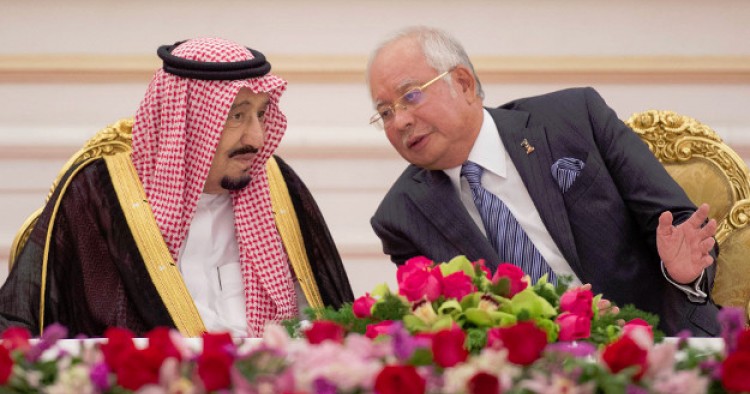The Iranian media extensively covered Saudi King Salman bin Abdulaziz al-Saud’s recent trip to Malaysia. State-run and semi-official outlets close to the Islamic Revolution Guards Corps (I.R.G.C.), in particular, discussed in details the growing economic and trade ties between Riyadh and Kuala Lumpur. But what received the most attention in the Iranian press was a joint statement in which the Saudi and Malaysian leaders “expressed serious concerns over the Iranian interference in the internal affairs of countries in the region,” and stressed the need for Iran to “respect the sovereignty of states.”
Tasnim News Agency, an I.R.G.C. mouthpiece, wrote that the outcome of the Saudi King’s visit to Malaysia was an “anti-Iran joint statement,” and described the allegations against Iran as “baseless.” Iran’s Press TV speculated that Saudi Arabia’s expenditures in the Yemeni war and the low price of oil have forced the Saudi government to encourage East Asian countries to invest in the country to shore up its economy. The Islamic Republic News Agency run a lengthy backgrounder of Saudi-Malaysian relations since the 1960s, and cautioned that Riyadh has increased its influence in Malaysia by providing financial aid to the Malaysian government and investing in the country.
Comment: The growing economic and military ties between Riyadh and Kuala Lumpur trouble Tehran. Malaysian military forces have been part of the Saudi-led coalition fighting Iran-supported Houthi rebels in Yemen since May 2015. And Tehran is worried that Riyadh’s outreach to Malaysia and other Muslim nations in East Asia would also isolate the Islamic Republic economically and adversely affect its interests. This is at a time when the Iranian government, relatively relaxed from the international sanctions regime, is seeking to expand its economic and trade ties with Malaysia and other East Asian countries. Since the lifting of most nuclear-related international sanctions on Iran in January 2016, Iranian and Malaysian officials have on several occasions discussed ways to bolster bilateral ties. In December, Malaysia’s state-owned energy company Petroliam Nasional Bhd signed a preliminary agreement to study two oil fields in Iran to help boost Iran’s oil and gas production. The two countries are also working on a potential free trade agreement (FTA).
The joint statement by Saudi and Malaysian leaders also indicates that Muslim countries beyond the Middle East are concerned about Iran's expansionist agenda and its interference in internal affairs of sovereign nations.
The Middle East Institute (MEI) is an independent, non-partisan, non-for-profit, educational organization. It does not engage in advocacy and its scholars’ opinions are their own. MEI welcomes financial donations, but retains sole editorial control over its work and its publications reflect only the authors’ views. For a listing of MEI donors, please click here.













